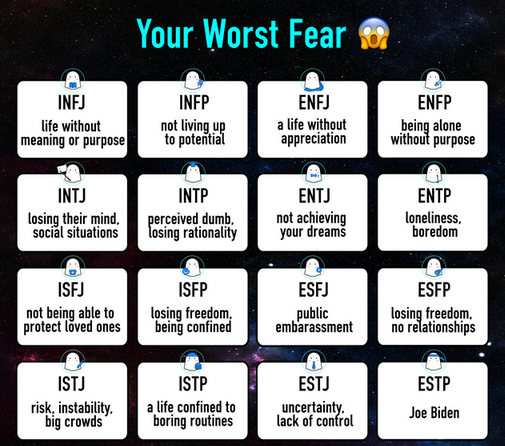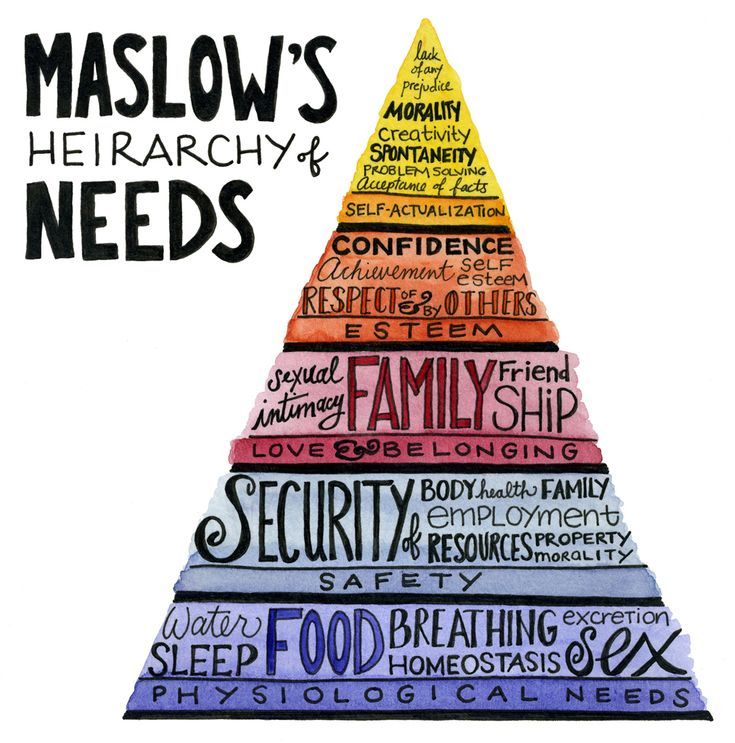What is an extrovert personality type
What Is an Extrovert? Personality, Characteristics, Type, and More
Extroverts are often described as the life of the party. Their outgoing, vibrant nature draws people to them, and they have a hard time turning away the attention. They thrive off the interaction.
On the opposite side are introverts. These people are typically described as more reserved. They may engage in a multitude of social activities, but they need time away from others to recharge their energy.
In the 1960s, psychologist Carl Jung first described introverts and extraverts when discussing personality elements. (The term now commonly used is extroverts.) He classified these two groups based on where they found their source of energy. In short, Jung argued extroverts are energized by crowds and interaction with the external world. Introverts need alone time to recharge, and they’re often more reserved in their manners and engagement with others.
As Jung discovered, being an extrovert isn’t an all or nothing option. Instead, most people fall somewhere on a spectrum between the two polar ends. In the years since Jung’s theories first became popular, research has discovered there are genetic and hormonal reasons some people display more extroverted characteristics than others.
Here are some common personality traits associated with extroversion:
You enjoy social settings
People with more extroverted tendencies are often the center of attention — and they like it that way. They thrive in social situations, and they seek out social stimulation. Extroverts often aren’t afraid to introduce themselves to new people, and they rarely avoid unfamiliar situations for fear of messing up or not knowing someone.
You don’t like or need a lot of alone time
While introverts need to escape to their homes or offices after a night out with friends or an intense meeting, extroverts find that too much alone time drains their natural energy. They recharge their internal batteries by being around other people.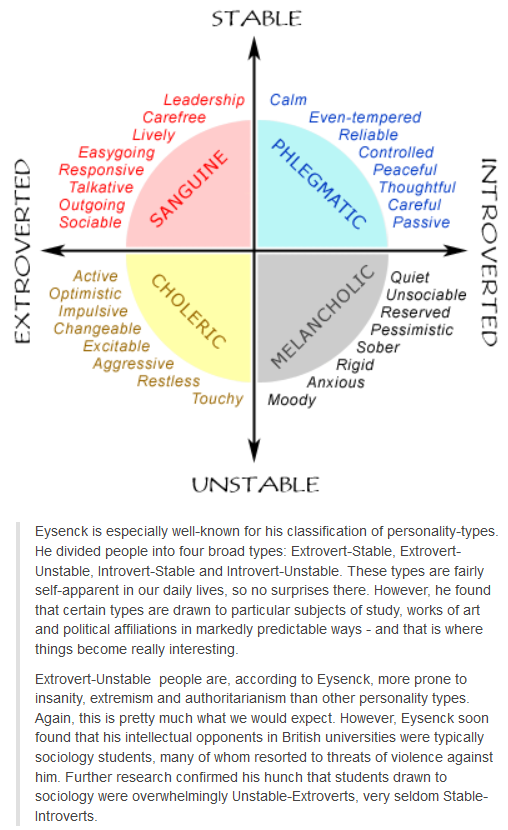
You thrive around people
Extroverts feel comfortable in large groups. They may be more likely to spearhead group sports or group outings. They may be the ring leader for weekend activities, after-work cocktail hours, or other social events. They rarely turn down invitations to weddings, parties, and other gatherings.
You’re friends with many people
Extroverts make new friends easily. This is in part because they enjoy other people’s energy and getting to engage with people around them. They also tend to have a large social network and many acquaintances. With pursuing new interests and activities, extroverts are often keen to expand their social circles.
You prefer to talk out problems or questions
While introverts are more likely to internalize problems and think through them, extroverts don’t mind taking their problems to others for discussion and guidance. They’re often more willing to express themselves openly and make clear their preferences or choices.
You’re outgoing and optimistic
Extroverts are often described as happy, positive, cheerful, and sociable. They aren’t as likely to dwell on problems or ponder difficulties. While they experience difficulties and troubles like anyone else, extroverts are often more able to let it roll off their backs.
You aren’t afraid of risk
Extroverts may engage in risky behavior. Some theories assert that their brain is wired to reward them for it if it goes well. One study found that extroverts who take risks and succeed are rewarded with dopamine, a chemical that triggers the reward center of the brain. In the case of the study, participants gambled, but the response could be true for any number of activities.
Extroverts may be more willing to take risks because the benefit is a surge of chemicals that stimulate the brain.
You’re flexible
Extroverts are often adaptable to any situation and innovative when problems arise. While they may be organized, not all extroverts need a plan of action before they can begin a project, plan a vacation, or undertake any task.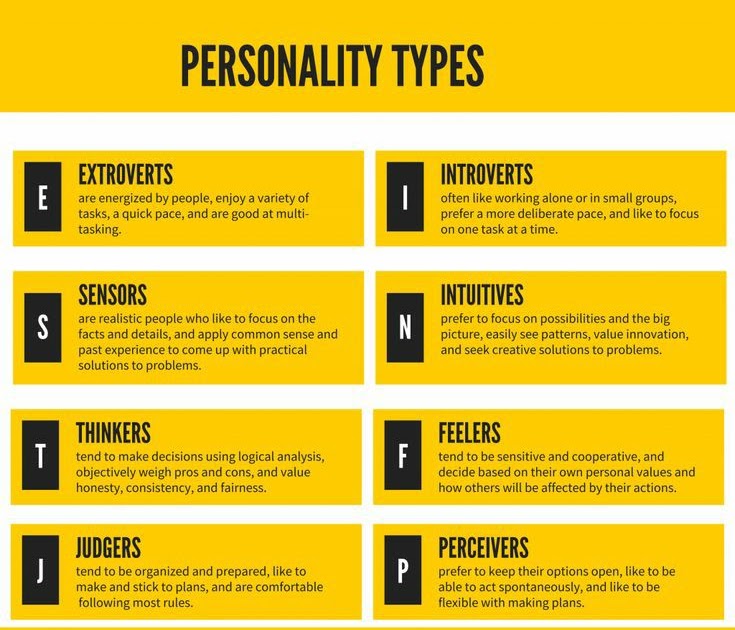 Spontaneous decisions may be welcomed.
Spontaneous decisions may be welcomed.
If you think you don’t match all the extroverted characteristics, you’re not alone. The reality is, most people do fall somewhere in the middle. Very few people are purely one type of personality. Even people who couldn’t dream of spending a Saturday night at home for fear of missing out on a great party need time to themselves occasionally.
Also, people can change personalities over the course of a lifetime. You may be more introverted as a child but find that you’re more extroverted as an adult. Fluctuations in the personality spectrum are normal. Some people even work to be more or less extroverted with help from therapists or self-help programs.
Of course, a large part of your personality is determined even before you make your first friend. Your genes play a role in your personality. In fact, one study found that the genes that control how your brain responds to dopamine may predict your personality characteristics.
Of course, brain chemistry isn’t the only factor involved in determining where you fall along the personality continuum, from introvert to extrovert.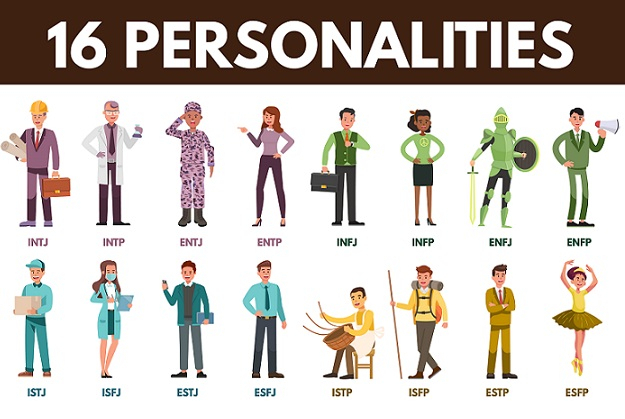 Your personality traits are part of your evolution and growth as an individual. They’re what make you unique.
Your personality traits are part of your evolution and growth as an individual. They’re what make you unique.
Myers-Briggs: 8 Extroverted Personality Types
“It is always good to know, if only in passing, charming human beings. It refreshes one like flowers and woods and clear brooks.” – George Eliot
The Myers-Briggs Type Indicator (MBTI) divides personality into 16 distinct types, based on Carl Jung‘s theory of psychological type. We all exhibit different “preferences” for ways of being and interacting with others in the world. The idea behind personality type is that characteristics that appear random or without a distinctive pattern make sense when we consider these behaviors through the lens of personality.
Most people are not “always” one way or the other. We tend to act in different ways depending upon the specific situation and people. This is highly adaptive and enables us to alter our behaviors to fit different social contexts. For example, someone who might identify as being highly extroverted may exhibit more introverted tendencies by taking great pleasure in spending their down time alone.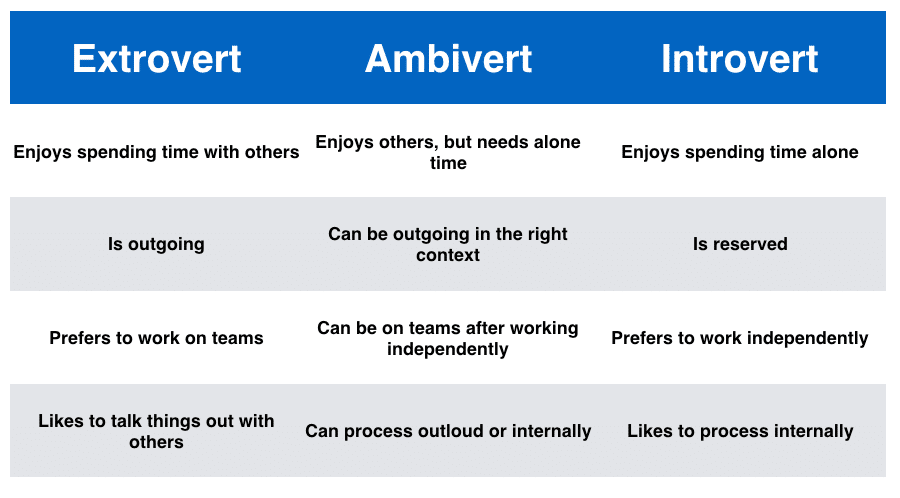 However, it they are primarily “energized” by time spent with other people, they would likely fall closer to the extroverted side of the “E-I” continuum.
However, it they are primarily “energized” by time spent with other people, they would likely fall closer to the extroverted side of the “E-I” continuum.
Extroverted individuals tend to derive their energy from being actively involved in events and activities with social interaction. They tend to enjoy moving into action and energizing other people around them. Many extroverts have a tendency to enjoy “talking through” their problems/thoughts/feelings with another person, as opposed to processing internally.
ESTPExtroverted / Sensing / Thinking / Perceiving – (5.6% of males, 3.0% of females)
ESTP’s are outgoing “straight shooters” who like to take a practical approach to problem solving that will produce immediate results. They are skilled at picking up on little clues about others’ personalities and feelings, which contributes to their strong social skills. They tend to be bored by abstract theories and prefer taking energetic action towards solving problems.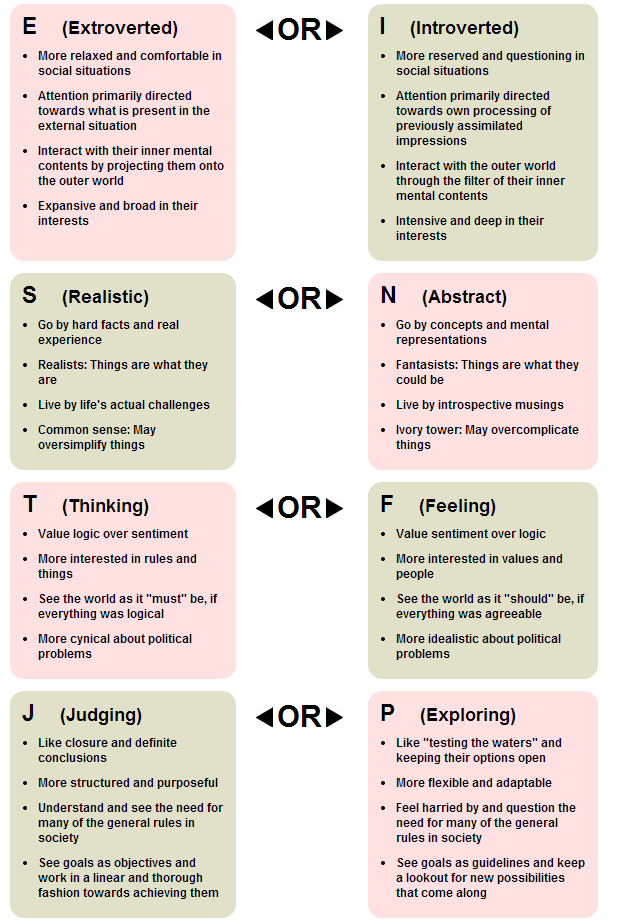 ESTP’s are spontaneous, focused on the present moment, and tend to learn best through doing.
ESTP’s are spontaneous, focused on the present moment, and tend to learn best through doing.
Extroverted / Sensing / Feeling / Perceiving – (6.9% of males, 10.1% of females)
ESFP’s live in a world of possibilities, loving people and new experiences. They tend to be outgoing, accepting, and friendly, frequently finding themselves in the role of peacemaker. ESFP’s are spontaneous, optimistic, and view the world as a stage. They love working together with other people to make things happen. They tend to struggle with negative possibilities, and may become overwhelmed by negative thoughts when under stress. They love life and their bonds with other people.
ENFPExtroverted / Intuitive / Feeling / Perceiving – (6.4% of males, 9.7% of females)
ENFP’s are warm enthusiastic people, who are typically bright and full of potential. They are imaginative and see life as being full of possibilities.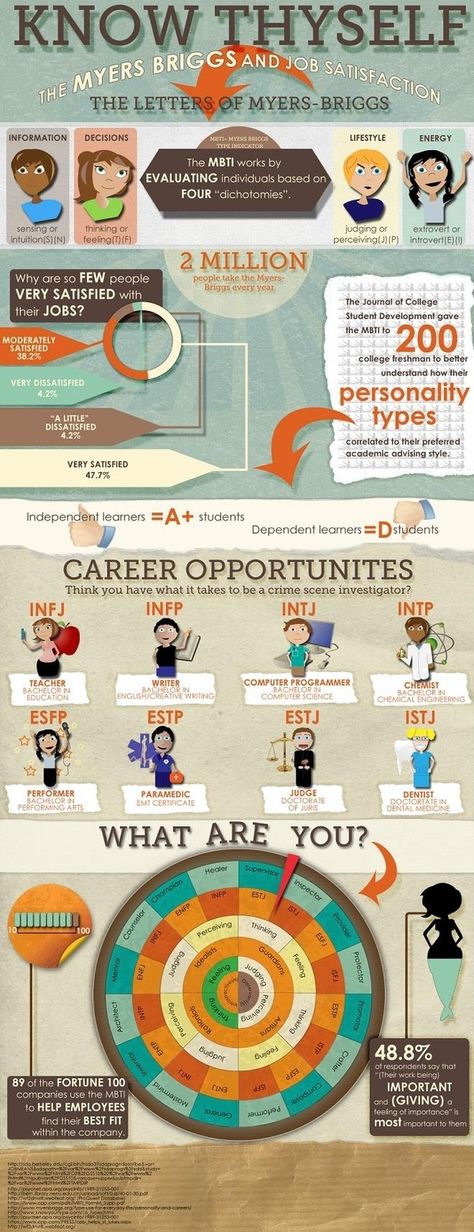 They tend to have a broad range of interests and do well at the things that interest them. ENFP’s quickly see connections between events and information, and are able to move forward with confidence based on what they see. When maladaptive, an ENFP has the capacity to be manipulative and use their “gift of gab” in negative ways.
They tend to have a broad range of interests and do well at the things that interest them. ENFP’s quickly see connections between events and information, and are able to move forward with confidence based on what they see. When maladaptive, an ENFP has the capacity to be manipulative and use their “gift of gab” in negative ways.
Extroverted / Intuitive / Thinking / Perceiving – (4.0% of males, 2.4% of females)
ENTP’s are “idea people” who are able to intuitively understand people and situations with ease. They tend to be quick, alert, and outspoken. They are more interested in generating ideas and possibilities than specific plans of actions. ENTP’s are fluent conversationalists who tend to enjoy lively “sparring” with others. They are good at reading people and tend to be bored by routine. ENTP’s tend to be upbeat visionaries who value knowledge, understanding, and possibilities.
ESTJExtroverted / Sensing / Thinking / Judging – (11. 2% of males, 6.3% of females)
2% of males, 6.3% of females)
ESTJ’s live in the present, honor traditions and laws, and have a clear set of standards and beliefs. They are realistic, matter-of-fact, and practical in nature. They are “take-charge” people who tend have a clear vision of how things should be; they easily step into leadership roles. ESTJ’s excel at organizing projects and people to get things done and take care of routine details. They put a lot of effort into all that they do, valuing security and social order. When stressed, they may feel isolated from others.
ESFJExtroverted / Sensing / Feeling / Judging – (7.5% of males, 16.9% of females)
ESFJ’s love people and take a warm interest in others. They have a strong desire to be liked and for things to be pleasant, which lends them to being supportive of others. ESFJ’s tend to be gifted at making others feel good about themselves. They are conscientious, warm-hearted, and cooperative. They define their values externally (i. e., based on the people around them and their community, as opposed to internally), with a clear set of what those values are. They enjoy being appreciated and making contributions.
e., based on the people around them and their community, as opposed to internally), with a clear set of what those values are. They enjoy being appreciated and making contributions.
Extroverted / Intuitive / Feeling / Judging – (1.6% of males, 3.3% of females)
ENFJ’s live in the world of “people possibilities” and have excellent people skills. They are empathetic, warm, and responsible. They tend to be quite externally focused and often neglect to spend time alone (when they have a tendency to turn to dark thoughts). They are able to see the potential in everyone, and are interested in helping others reach their potential. They may feel lonely when around people, because they tend to now show all of themselves. They are loyal, responsive to praise and criticism.
ENTJExtroverted / Intuitive / Thinking / Judging – (2.7% of males, 0.9% of females)
ENTJ’s are straightforward, decisive, and readily step into leadership roles.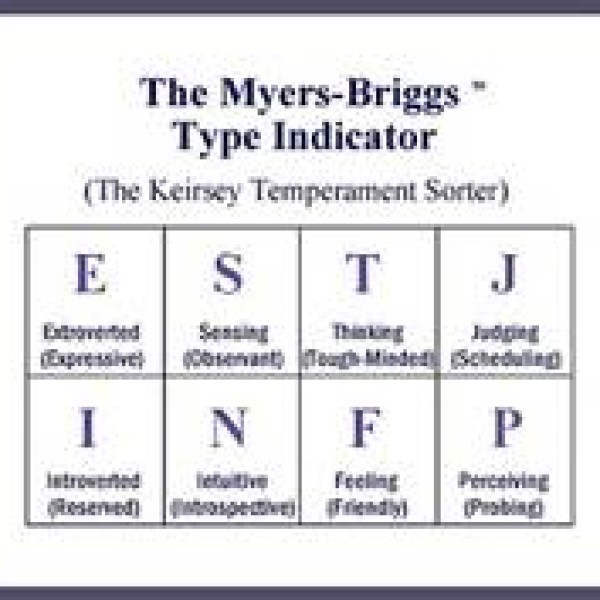 They live in a world of possibilities and view difficulties as challenges to be overcome. They are career-focused and look for ways to turn problems into solutions. ENTJ’s enjoy long-term planning and goal-setting. They tend to be knowledgeable, well-informed and may be forceful in the style that the present their ideas. Although not naturally tuned into others’ feelings, they often have strong sentimental streaks.
They live in a world of possibilities and view difficulties as challenges to be overcome. They are career-focused and look for ways to turn problems into solutions. ENTJ’s enjoy long-term planning and goal-setting. They tend to be knowledgeable, well-informed and may be forceful in the style that the present their ideas. Although not naturally tuned into others’ feelings, they often have strong sentimental streaks.
If you felt that you identified as an extrovert in my recent post, Understanding the Myers-Briggs Type Indicator, which specific extroverted type stood out to you the most? For some, a brief description of their Myers-Briggs type is a bit of an “a-ha!” moment.
For others, they may identify with features of multiple types. It is important to remember that no one type is “better” or “worse” than any other. Each type has specific strengths and weaknesses; they are simply different.
– – – – – – – – – – – – – – – – – – – – – – – – – – – – – – – – – – – – – – – – – – – – – – – – – – – – – – – – – – – – – – – – –
If you are interested in taking the official MBTI personality assessment, you may take it at MBTI Complete for $59.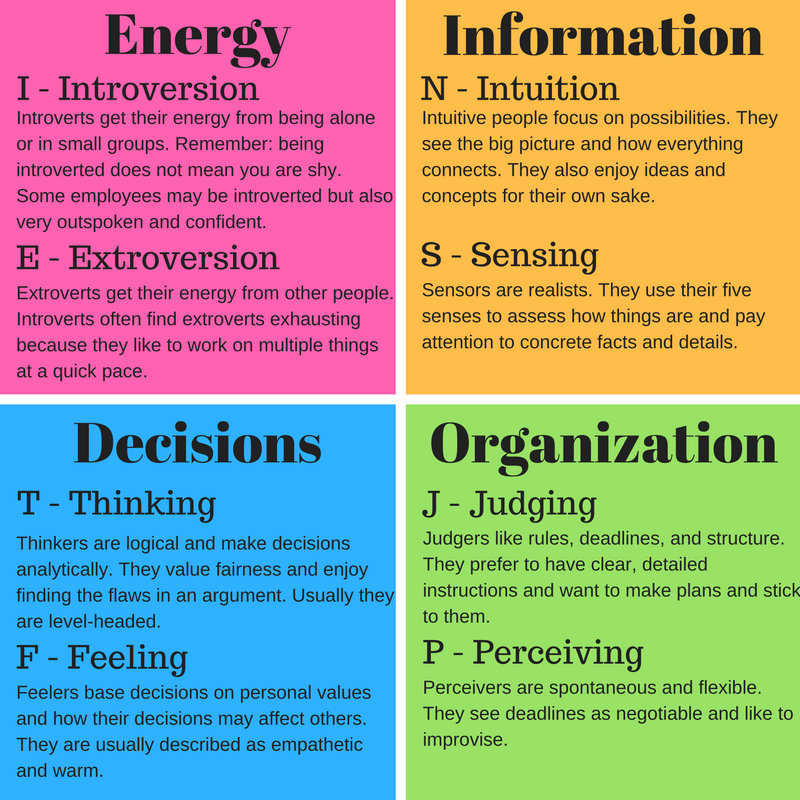 95. For an unofficial version of the Jung Typology Test, you may take it for free at HumanMetrics.
95. For an unofficial version of the Jung Typology Test, you may take it for free at HumanMetrics.
MBTI Statistics
The Myers & Briggs Foundation. (n.d.). Retrieved from http://www.myersbriggs.org/
Featured image: Metallica at Rock Werchter 2009 by crsan / CC BY 2.0
Extraverted personality type. What is an extrovert?
Who is an extrovert - everyone will answer this question. Well, indeed: this is a sociable, active person, slightly dependent on the opinion of society. Does this type have disadvantages that prevent him from living? Is it possible to become an extrovert? Let's take a closer look at the features of this personality type, which, in fact, is the opposite of an introvert.
What are they - extroverts
An extrovert is a person who always strives to be in the spotlight, cannot sit idle and is highly dependent on interaction with people. nine0003
People of this type are impulsive, know how to present themselves, easily establish useful contacts. They can also inspire people, they do an excellent job with the role of a leader, they are often informal leaders. They openly show emotions, adapt without any problems in a new environment and are always open to new experiences.
They can also inspire people, they do an excellent job with the role of a leader, they are often informal leaders. They openly show emotions, adapt without any problems in a new environment and are always open to new experiences.
How to recognize an extrovert?
-
He hates being alone;
nine0016 -
When communicating, he talks more than he listens;
-
Does not like to engage in self-digging;
-
Spontaneous;
-
Quickly forgets grievances;
-
Often writes or calls his friends. nine0003
Advantages of an extrovert
Decisiveness. They are risk-averse and never ask “What if…?” questions.
Cheerfulness. Such people do not dwell on problems and failures. They easily let go of the past and enjoy the present.
Rich biography.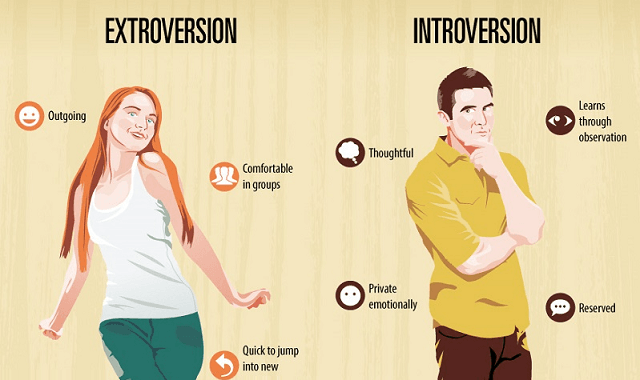 Due to the fact that they like to take risks and take everything from life, many interesting events happen to them. nine0003
Due to the fact that they like to take risks and take everything from life, many interesting events happen to them. nine0003
Popularity with the opposite sex. We all love positive and sociable people from whom we get a lot of positive emotions. That is why people are drawn to such a person.
Cons of an extrovert
Recklessness. Extroverts live for today and do not plan for the future.
Low self-monitoring. If they experience strong emotions, then everyone will see them, because at this time extroverts do not think about others. nine0003
Variability. They often change their appearance, hobbies, do not stay long at one job, move furniture in the house, move, etc.
Lack of true friends. Since extroverts are accustomed to superficially communicate with people, they most often do not have real friends. On a clear day, they have many acquaintances and friends with them, and on a gloomy day they are in splendid isolation.
Is it possible to become an extrovert? nine0005
Please note that an extrovert is a type of personality that depends on many physiological processes in the body. Extroverts are born, not made.
However, with daily training and practice, it is quite possible to develop communication skills, become more energetic, decorate your biography. Try to notice your strengths and develop them, and it is enough to control and work out the shortcomings. Then you will feel comfortable and feel less fear for minor reasons. nine0003
Picture – Stephen Aguilar on Unsplash
Extrovert | Relaza
Extraversion is a psychological way of adapting a person to external conditions, which consists in a high rate of reproduction with relatively low security, which constantly encourages the extrovert to waste and take root in everything around. Of the 16 personality types, half are extroverts: 90,003
The extroverted personality type is the exact opposite of the calm and reserved introverts. An extrovert is an active and energetic person, more focused on the outside world, and not on their inner experiences. Such people, as a rule, have no problems with communication, they have a very wide circle of friends, they prefer a noisy company to loneliness. A distinctive feature of an extrovert is not only his excellent communication skills, but also a strong self-confidence, due to adequate self-esteem. In contrast to the self-sufficient introvert, extroverts are quite dependent on society, namely public opinion. These people value their reputation very much and often react emotionally to any criticism addressed to them. However, extroverts, for the most part, are relatively friendly, communication with them brings a huge boost of energy and positive emotions. nine0003
An extrovert is an active and energetic person, more focused on the outside world, and not on their inner experiences. Such people, as a rule, have no problems with communication, they have a very wide circle of friends, they prefer a noisy company to loneliness. A distinctive feature of an extrovert is not only his excellent communication skills, but also a strong self-confidence, due to adequate self-esteem. In contrast to the self-sufficient introvert, extroverts are quite dependent on society, namely public opinion. These people value their reputation very much and often react emotionally to any criticism addressed to them. However, extroverts, for the most part, are relatively friendly, communication with them brings a huge boost of energy and positive emotions. nine0003
The vast majority of an extrovert's actions in social terms are aimed at gaining attention to their person, such personalities do not like to stay in the shadows, and if the slightest opportunity is given to show oneself, to realize oneself in any area, the extrovert will never miss it.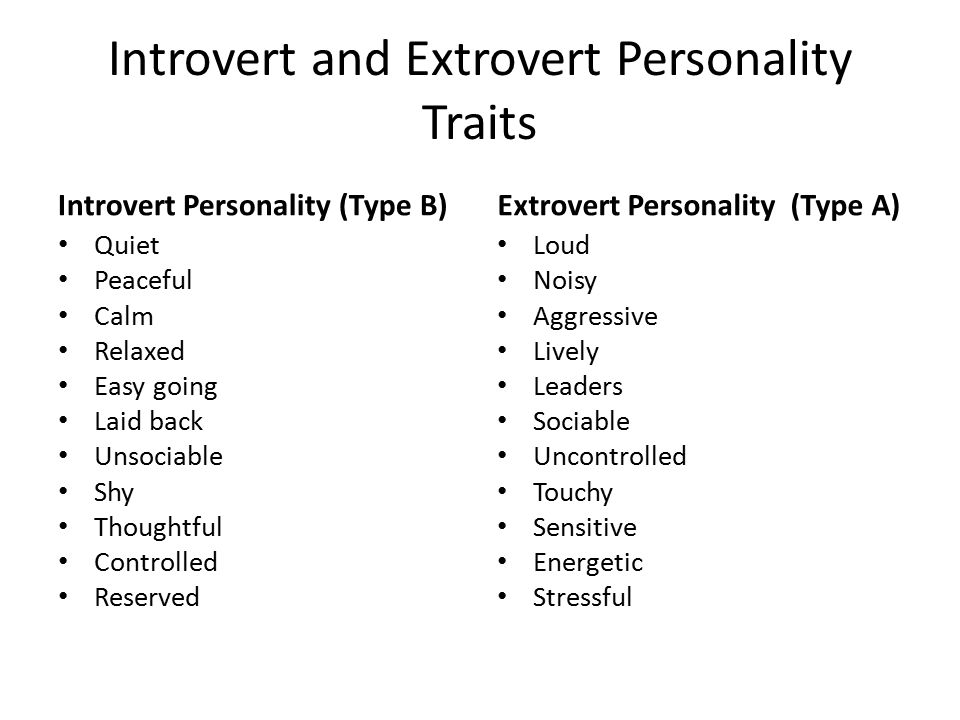 The fact that extroverts are less focused on their inner experiences does not mean that they are callous and insensitive people. An extrovert may well be the owner of a beautiful and deep inner world, but he does not consider it necessary to go deeper, let alone reveal it. Excessive self-confidence often prevents the desire to change oneself, but this desire is replaced by the need to change the world. An extrovert feels the need to constantly be in the center of any events, and even better - to be a part of them. nine0003
The fact that extroverts are less focused on their inner experiences does not mean that they are callous and insensitive people. An extrovert may well be the owner of a beautiful and deep inner world, but he does not consider it necessary to go deeper, let alone reveal it. Excessive self-confidence often prevents the desire to change oneself, but this desire is replaced by the need to change the world. An extrovert feels the need to constantly be in the center of any events, and even better - to be a part of them. nine0003
An introvert replenishes his energy in solitude, plunging into himself, his thoughts, etc. An extrovert, on the other hand, rests in a completely different way - active social events, crowded places, communication with numerous friends and acquaintances. That is why it is very difficult for these two personality types to interact with each other. An introvert is not able to understand the essence of meaningless conversations, and an extrovert is annoyed by the slowness and wandering in the clouds of his interlocutor. Indeed, in a conversation with an extrovert, you can hear things that should be kept to yourself. It is worth noting that not all extroverts are empty talkers, it is very rare to meet a person who is completely suitable for a particular psychotype, each of us has features of all types of personalities that manifest themselves to varying degrees. nine0080
Indeed, in a conversation with an extrovert, you can hear things that should be kept to yourself. It is worth noting that not all extroverts are empty talkers, it is very rare to meet a person who is completely suitable for a particular psychotype, each of us has features of all types of personalities that manifest themselves to varying degrees. nine0080
Another distinguishing feature of almost all extroverts is optimism, which manifests itself even in the most hopeless situations. Therefore, others see extroverts as strong and strong-willed individuals who can cope with any adversity. An extrovert is a man of action, he will not complain about troubles, but will try to make every effort to solve them. Due to his confidence, an extrovert is always ready to take responsibility for any business or a very important project. Managing people and coordinating their activities is the real calling of sociable extroverts. You should not consider such personalities as frivolous talkers, an extrovert is quite capable of a thoughtful and qualitative analysis of the situation, but unlike an introvert, he does not arrive in this state most of the time.


